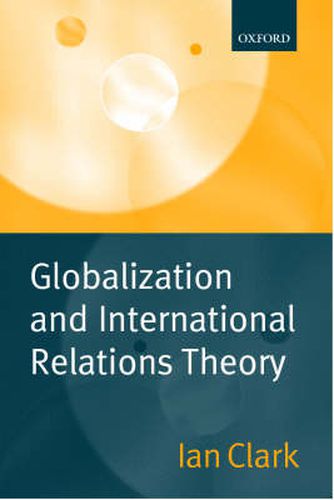Readings Newsletter
Become a Readings Member to make your shopping experience even easier.
Sign in or sign up for free!
You’re not far away from qualifying for FREE standard shipping within Australia
You’ve qualified for FREE standard shipping within Australia
The cart is loading…






Globalization has become a key social-scientific concept of the 1990s. It makes a variety of contested claims: that, as the world shrinks, territory and distance have become less important; that there are no longer separate national economies; and that all humanity is now exposed to similar technological, economic, social, and cultural pressures. Above all, it tends to call into question the continuing relevance of the state. As such, it appears to challenge directly most of the assumptions that lie at the heart of IR theory. However, rather than see globalization as something which makes traditional IR theory redundant, this book argues for a fruitful engagement between the two. It uses its distinctive account of globalization to address a wide range of issues in IR theory: sovereignty, the state’s role in economic management and security provision, the nature of community and the viability of democracy. Its basic argument is that globalization does not spell the end of the state. On the contrary, globalization is itself as much a reflection of changes in state practice that have already taken place. This clearly written and accessible account of the theoretical debates about globalization will be of use to students and academics across a range of disciplines, in particular those on globalization, IR theory, and IPE courses.
$9.00 standard shipping within Australia
FREE standard shipping within Australia for orders over $100.00
Express & International shipping calculated at checkout
Globalization has become a key social-scientific concept of the 1990s. It makes a variety of contested claims: that, as the world shrinks, territory and distance have become less important; that there are no longer separate national economies; and that all humanity is now exposed to similar technological, economic, social, and cultural pressures. Above all, it tends to call into question the continuing relevance of the state. As such, it appears to challenge directly most of the assumptions that lie at the heart of IR theory. However, rather than see globalization as something which makes traditional IR theory redundant, this book argues for a fruitful engagement between the two. It uses its distinctive account of globalization to address a wide range of issues in IR theory: sovereignty, the state’s role in economic management and security provision, the nature of community and the viability of democracy. Its basic argument is that globalization does not spell the end of the state. On the contrary, globalization is itself as much a reflection of changes in state practice that have already taken place. This clearly written and accessible account of the theoretical debates about globalization will be of use to students and academics across a range of disciplines, in particular those on globalization, IR theory, and IPE courses.